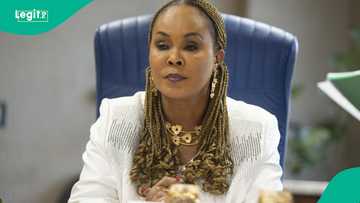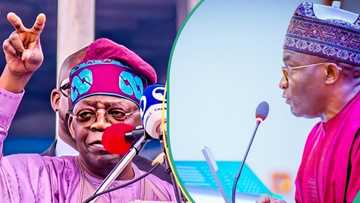Beyond Policies: 7 Ways to Bridge the Implementation Gap for Gender Equality in Nigeria
- Nigeria, despite its cultural diversity and natural resources, faces significant challenges in achieving gender equality due to the gap between policy and practice
- Despite committing to international conventions and national policies promoting women's rights, factors such as lack of political will, entrenched cultural norms, among others
- This article explores how best to address these issues through political commitment, cultural transformation, adequate funding, and so on
FCT, Abuja - Nigeria, rich in cultural diversity and natural resources, has long struggled with gender equality. Despite numerous policies promoting gender equality, implementing these policies often falls short.
This discrepancy between policy and practice creates a significant barrier to achieving true gender parity.
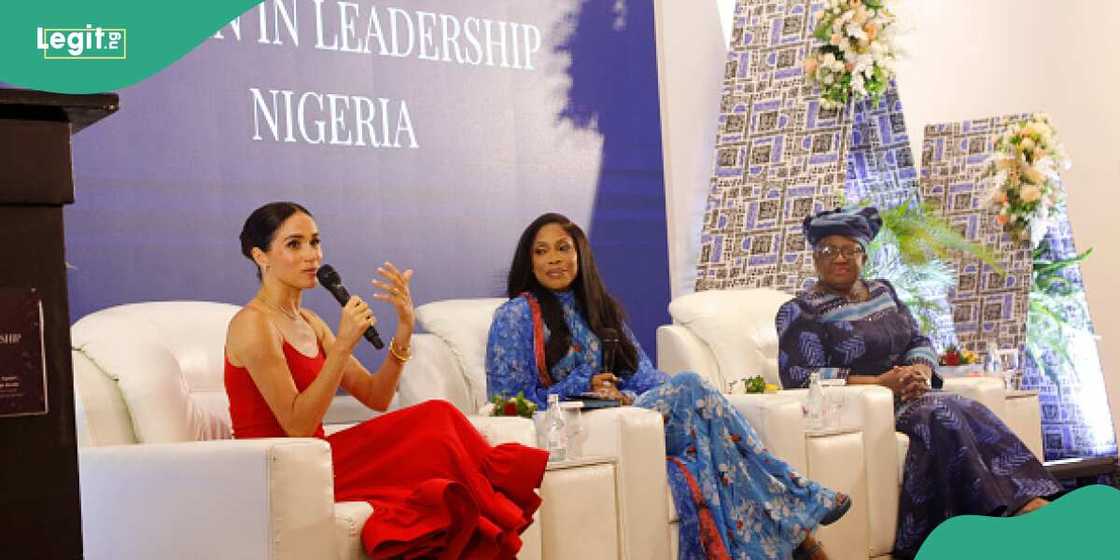
Source: Getty Images
Addressing this implementation gap is crucial for Nigeria to harness the full potential of its population and foster a more inclusive and equitable society.

Read also
Canada opens opportunity for caregiver jobs, lists companies ready to sponsor Nigerians, others
Over the years, Nigeria has made several commitments to gender equality. These include ratifying international conventions such as the Convention on the Elimination of All Forms of Discrimination Against Women (CEDAW) and adopting national policies like the National Gender Policy (NGP).
These frameworks promote women's rights and ensure equal opportunities in various spheres, including education, employment, and political participation.
The National Gender Policy, for instance, sets clear goals for achieving gender equality and outlines strategies for mainstreaming gender considerations into all aspects of governance and development.
The policy emphasises the need for legal reforms, the promotion of women's economic empowerment, and the elimination of gender-based violence.
This move birthed 35% affirmative action for women through the tireless efforts of the Nigerian Women Trust Fund (NWTF) alongside nine other civil society organisations.
Despite a high court ruling in 2022 that supported the bill for implementation at the National Assembly, the legislative arm of government has stalled, raising questions about some sensitive implementation gaps.
The Implementation Gap
Despite these well-articulated policies, the reality on the ground tells a different story. The implementation gap can be attributed to several factors:
Lack of Political Will: While policies are in place, the commitment to enforcing them is often weak. Political leaders may publicly endorse gender equality but fail to allocate the necessary resources or take decisive actions to support implementation.
Cultural and Social Norms: Deep-seated cultural and social norms continue to perpetuate gender inequality. Patriarchal attitudes and practices limit women's opportunities and reinforce discriminatory behaviours. Changing these norms is a slow and challenging process that requires sustained effort and education.
The Director of Democracy and Governance at Connected Development (CODE), Mr Emmanuel Njoku, revealed in an exclusive interview with Legit.ng that patriarchy has eaten deep into the Nigerian system, thereby marginalising women in all spheres of power.
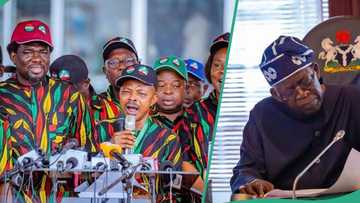
Read also
JUST IN: Full details of promises, agreement between Tinubu's govt, NLC finally out, details emerge
Reacting to the delay in implementing the 35% Affirmative Action for women, Njoku said:
"This also explains why we have never had a female elected governor in Nigeria and a 4.2% female representation in this 10th NASS.
"If we must look at the challenges of the implementation of the 35% Affirmative Action, that, right there, is the reason.
"Who are the persons that will need to vote to amend the electoral laws to accommodate reserved seats for women in the parliament? The 95% male-dominated parliamentarians?"
Resource Constraints: Effective implementation of gender equality policies requires significant financial and human resources.
In many cases, the funds allocated for gender initiatives are insufficient, and there is a lack of trained personnel to execute these programs effectively.
Weak Institutional Frameworks: Institutions responsible for enforcing gender policies often lack the capacity and coordination needed to be effective.
This includes inadequate data collection and monitoring mechanisms to track progress and hold stakeholders accountable.
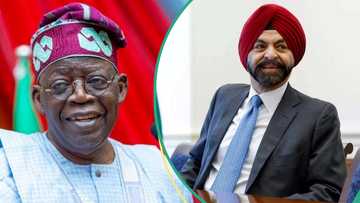
Read also
"The lessons are clear": World Bank mentions timeframe economic hardship will end in Nigeria
Legal Barriers: Although Nigeria has made strides in legal reforms, certain discriminatory laws and practices remain.
For example, inheritance laws in some regions still favour men, and legal protections against gender-based violence are not always enforced rigorously.
Bridging the Gap: Strategies for Effective Implementation
To bridge the implementation gap and advance gender equality in Nigeria, a multifaceted approach is needed. Here are some strategies that can make a difference:
Strengthening Political Commitment: Genuine political will is essential. This can be fostered through advocacy and lobbying efforts that highlight the benefits of gender equality for societal development.
Political leaders should be held accountable for their commitments to gender policies.
Cultural Transformation: Changing cultural and social norms requires grassroots engagement and education.
Community leaders, religious leaders, and local influencers can play a pivotal role in challenging discriminatory practices and promoting gender-sensitive attitudes.
In reaction to this proposed solution, Njoku also said:
"If you take a closer look at the girl child education problem in Nigeria, it will be a clear pointer to the reasons why the implementation is so lethargic.
"The African culture does not prepare women to become leaders, over men. That’s why in most traditional leadership structures/set up, you won’t find a woman as a Traditional ruler, or a member of the traditional rulers cabinet in most places across the country."
Adequate Funding: It is crucial to ensure that gender equality initiatives are properly funded. This includes public and private sector investment in programs supporting women's empowerment and addressing gender disparities. It is imperative to state that the support given by the Open Society Foundations (OSF) to the NWTF is a good way to start. It is essential to say that more funding and support is required to achieve the desired goal Towards an Inclusive Governance in Nigeria (TIGN).
Capacity Building: Strengthening the capacity of institutions responsible for gender policy implementation is vital. This can involve training for government officials, better data collection systems, and improved coordination among various stakeholders.
Most recently, the National Institute for Leadership and Ending Violence against Women and Girls (NILEVAWG) staged a three-day national capacity-building event for young women aged 18 to 35.
Founded by the Nigerian Women Trust Fund (NWTF), the Institute aims to provide participants with leadership and mobilisation skills and knowledge of existing frameworks to combat Violence against Women and Girls (VAWG) in Nigeria.
This training marks the third phase of a mentorship program designed to create a robust network of young women nationwide who are aware of the suffering caused by abuse, rape, and various forms of violation.
The programme aims to prepare these women to develop practical and lasting solutions to eradicate violence against women and girls.
Legal Reforms: Continued efforts are needed to reform discriminatory laws and ensure robust legal protections for women.
This includes enforcing existing laws more effectively and closing gaps where legal protections are insufficient.
Public Awareness Campaigns: Raising awareness about gender equality issues through media campaigns, educational programs, and public events can help shift public perceptions and build broader support for gender equality initiatives.
Monitoring and Accountability: Establishing robust monitoring and accountability mechanisms is essential for tracking progress and identifying areas for improvement. Regular reporting and independent evaluations can help ensure that gender policies are effectively implemented.
The journey towards gender equality in Nigeria is far from complete. While significant progress has been made in terms of policy formulation, the real challenge lies in bridging the implementation gap.
By addressing the underlying factors that hinder effective implementation and adopting a comprehensive approach, Nigeria can move closer to achieving true gender parity. This, in turn, will not only enhance the lives of women and girls but also contribute to the nation's overall development and prosperity.

Read also
“Ritual killings, human part business has taken over Igala Land,” Kogi PDP chieftain Okai cries out
For Nigeria, the path to gender equality is long and challenging, but with sustained effort and commitment, it can and must be completed.
Gender equality: Tinubu's govt vows to protect women
Meanwhile, the minister of women's affairs, Mrs Uju Kennedy-Ohanenye, has reiterated that the administration of President Bola Ahmed Tinubu would continue to support gender equity, equality and inclusion.
Kennedy-Ohanenye, represented by Mrs Funke Oladipo, the director of Gender and Development, stated this in Abuja on Tuesday, February 28, at the third annual transformative gender justice conference organised by Christain Aide, Nigeria, in partnership with the Act Alliance Nigeria, African Centre for Leadership, Strategy and Development (Centre LSD), Action Aid Nigeria, Plan International, Girls Not Bride, Cuso International and Action Against Hunger.
PAY ATTENTION: Сheck out news that is picked exactly for YOU ➡️ find the “Recommended for you” block on the home page and enjoy!
Source: Legit.ng



